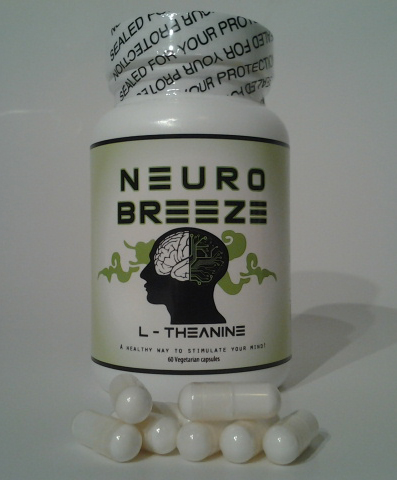L-Theanine is a non-essential amino acid and glutamic acid analog commonly found in various types of tea. L-Theanine crosses the blood brain barrier readily giving it its psychoactive properties. L-Theanine is an analog of glutamate, which is an essential neurotransmitter implicated in improving learning and memory processes. It was first extracted from a gyokuro leaf in 1950 by a lab in Kyoto after its discovery in 1949.
L-Theanine stimulates the GABA receptor and is a fat-soluble nootropic. Due to L-Theanine being an analog of glutamine it has been shown to be an effective treatment for not only mental stress, but physical stress as well. Many studies have shown L-Theanine to be an anxiolytic, potentially due to increasing the dopamine levels.
L-Theanine does not just improve scores on tests of learning and memory, it also affects many other variables. L-Theanine has been shown to lower blood pressure, and anxiety. It has also been shown to aid in the improvment of the body’s immune system by increasing the amount of affliction fighting gamma delta T-Cells, and increasing antibacterial proteins.
One study showed that L-Theanine prevents memory impairment in cases related to repeated Cerebral Ischemia in rats. This study also showed that L-Theanine has neuroprotective qualities in regards to protecting against neuronal cell death, making it a plausible treatment for cerebrovascular diseases such as cerebral thrombosis and cerebral embolism. Egashira, N., Ishigami, N., Pu, F., Mishima, K., Iwasaki, K., Orito, K., Oishi, R. and Fujiwara, M. (2008), Theanine prevents memory impairment induced by repeated cerebral ischemia in rats. Phytother. Res., 22: 65–68. doi: 10.1002/ptr.2261
A recent double-blind placebo controlled study showed that L-Theanine enhances the memory and attentiveness in patients suffering from mild cognitive inability. The study showed that brain theta waves, which are implicated in cognitive attentiveness, were increased in the temporal, frontal, parietal, and occipital areas of the brain. The conclusion of the 16 week long study showed L-Theanine as a plausible treatment for improving cognition and memory. Sang-Ki Park, In-Chul Jung, Won Kyung Lee, Young Sun Lee, Hyoung Kook Park, Hyo Jin Go, Kiseong Kim, Nam Kyoo Lim, Jin Tae Hong, Sun Yung Ly, and Seok Seon Rho. Journal of Medicinal Food. April 2011, 14(4): 334-343. doi:10.1089/jmf.2009.1374.
L-Theanine was shown to reduce the amount of psychological and physiological stress in a double blind study on 12 participants. When administered L-Theanine the subjects heart rates were reduced as well as salivary immunoglobulin. The study was conducted through 4 different scenarios, and its conclusion was that L-Theanine could cause anti-stress effects through suppressing cortical neuron excitation. Biol Psychol. 2007 Jan;74(1):39-45. Epub 2006 Aug 22.
L-Theanine reduces psychological and physiological stress responses.
L-Theanine Dosage
The recommended L-Theanine dosage is usually 200-400 mg per day, taken in two 200 mg doses, one in the morning and one in the afternoon. L-Theanine is sold in both tablet and powder form, generally of 200 mg each.
Does L-Theanine Work?
L-Theanine is an non-essential amino acid that is promoted as a natural method of improving cognitive functions, relaxation, and . There have been clinical studies to suggest L-Theanine can improve memory, focus, and stress levels. This is accomplished through increasing the activity of various neuroreceptors and transmitters of the brain.
There are still many variables though that have to be looked at with improving cognitive abilities. As a result, it is very hard to determine just how effective L-Theanine would be for a specific person. It all comes down to their own needs and current cognitive ability as well as lifestyle choices.

Neuro Breeze L-Theanine